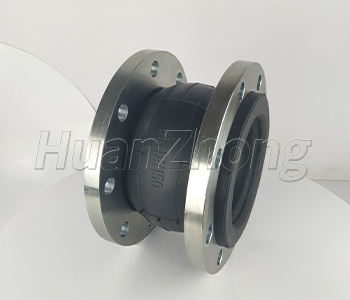How should domestic sewage bendable rubber joints choose the material?
How should domestic sewage bendable rubber joints choose the material?
The selection of bendable rubber soft joints should be considered from several aspects, such as the application of the natural environment and working conditions to meet the requirements of its performance indicators, which is the basic criteria for the selection of bendable rubber soft joints; followed by the excellent material production and processing performance of rubber soft joints, suitable for mass production, to ensure the consistency of the finished product performance and specifications; cost, organic matter is due to the difference in the source and composition of raw materials. Rubber soft joints are often exposed to various corrosive substances in the process of use, such as crude oil, organic solvents, acids, alkalis, O2, reactive oxygen, etc.. Different kinds of rubber, due to their different compositions, have different abilities to resist the corrosion of various substances. In use, it is necessary to choose the appropriate rubber material according to the environment of use and the type of contact material of the rubber flexible joints and rubber expansion joints.
Common materials used for flexible rubber soft joints are: common ones are: neoprene joints through circulating water, desulfurization wear-resistant EPDM soft joints. Low temperature resistant silicone joints, corrosion-resistant special EPDM, heat-resistant fluorine rubber, these rubbers are based on the test data from our scientific research department's efforts throughout China for many years. Developed. Meet the application requirements of various natural environments, especially the rubber used in this rubber soft joint meets our country's environmental protection grade, not easy to cause secondary pollution to the material, please use with peace of mind.

Common problems in the application of flexible rubber soft joints and corrosion-resistant rubber soft joints in sewage treatment stations: choose the appropriate model and specification according to the pipeline pressure, interface mode, material and compensation amount, and the total quantity is chosen according to the noise reduction offset requirements. When the pipeline generates instantaneous pressure and exceeds that pressure, corrosion-resistant rubber soft joints should be used with higher gear than pressure. (When the instantaneous working pressure of the pipeline is >1.0MPa, it is appropriate to choose the joint with working pressure of 1.6MPa, and when the instantaneous working pressure is >1.6MPa, it is appropriate to choose the joint with 5MPa). When the pipeline material is strong acid and alkali, oil, high temperature and other special materials, the joint with gear higher than the pipeline pressure should be used. The flange connected with the corrosion-resistant rubber soft joint should be the valve flange or the flange conforming to GB/T9115.1 (RF).
